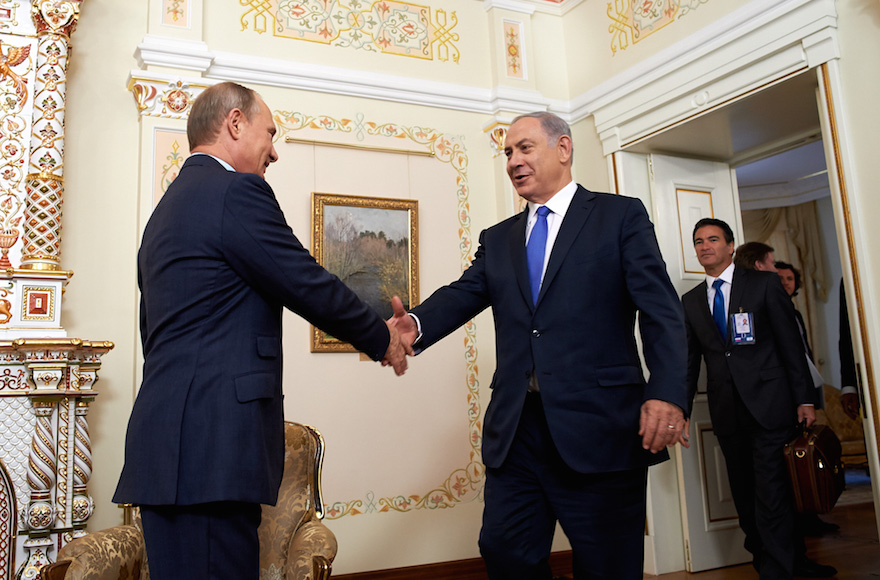(JTA) — Trade between Russia and Israel has grown this year by 25 percent, officials from both countries revealed, amid complications with other Russian trading partners.
The first six months of 2017 saw increased trade between the nations of about $380 million over the corresponding period last year.
Zeev Elkin, the Israeli Cabinet minister responsible for environmental protection and issues connected with Jerusalem, announced the figures earlier this week at a conference in Moscow about Russian-Israel relations.
“There is still great potential for increase in trade and there is much work ahead of us,” Elkin said in reference to ongoing talks since 2013 on signing a free trade agreement with Russia.
Temur Ben Yehuda, chairman of the Israeli Russian Business Council that organized the Moscow conference, cited primarily the attractiveness of Israeli businesses to Russian counterparts and vice versa in explaining the increase in trade between Russia and Israel.
“We are not only conducting dialogue on increasing trade, we are also signing major agreements between Israel and Russian firms, including Watergen, Assuta and many others,” he said.
The increase comes amid tightening cooperation between Israel and Russia on security issues connected with Syria, where the Russian government is engaged in propping up the beleaguered regime of the country’s president, Bashar Assad. Its involvement in Syria has complicated Russia’s relations with Turkey, which has aided some forces fighting Assad in Syria’s civil war dating to 2011, and soured trade between those nations.
Separately, Russia’s trade with the European Union and the United States has also suffered due to sanctions imposed by the West over its invasion of Ukraine in 2014 and annexation of land.
During that period, Russia’s relations with Israel, which have remained neutral both on the Syrian issue and Ukraine, have noticeably improved, with Israeli Prime Minister Benjamin Netanyahu traveling to Moscow at least five times in the space of one year.
The strengthening of the ruble, which had lost half its value against the dollar due to dropping oil prices, has also helped Russia’s ability to conduct international trade.
JTA has documented Jewish history in real-time for over a century. Keep our journalism strong by joining us in supporting independent, award-winning reporting.






